Fieldnote #2 by Steven Withrow:
Steven Malk, Children’s Book Agent
 January 27th, 2010 by jules
January 27th, 2010 by jules
{Quick Note from Jules: As you can see from that post title, things are comin’ up very Steven this morning at 7-Imp. This is the second in a series of posts by writer, researcher, teacher, editor, producer/film-maker, and poet Steven Withrow. He’s contributing one interview every month to 7-Imp, featuring a children’s publishing professional, or an expert from a related area, who is not primarily known as an author or illustrator—a publisher, editor, agent, art director, designer, critic, scholar, professor, librarian, bookseller, printer, marketer, museum curator, etc.}
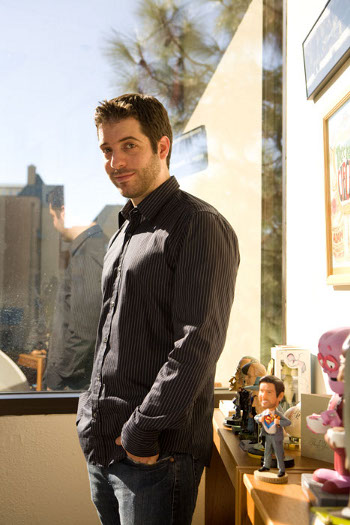 I’ll keep this introduction brief, because we cover the basics (and much more) in the interview below. I first contacted Steven Malk, who heads the West Coast office of Writers House and represents many great authors and illustrators, to inquire about interviewing Lane Smith for my upcoming Library of the Early Mind documentary with Edward J. Delaney. I discovered some other online interviews with Steve, and I needed to know more about him and his fascination with bookselling, baseball, and bobbleheads. So here goes:
I’ll keep this introduction brief, because we cover the basics (and much more) in the interview below. I first contacted Steven Malk, who heads the West Coast office of Writers House and represents many great authors and illustrators, to inquire about interviewing Lane Smith for my upcoming Library of the Early Mind documentary with Edward J. Delaney. I discovered some other online interviews with Steve, and I needed to know more about him and his fascination with bookselling, baseball, and bobbleheads. So here goes:
Steven Withrow: Let’s begin with your family history. It seems you were born to work in the children’s book field. Would you say that’s true, and could you tell me a little about your grandmother and your parents, and your memories of their children’s bookshops?
Steven Malk: I absolutely think that’s true. Both my grandmother and my parents owned children’s bookstores, so I’m actually the third generation of my family to be involved in children’s books.
In 1952, my grandmother opened her store, The Children’s Bookshop, in Johannesburg, South Africa. It was one of the first children’s-only bookstores in the world, and she ran into a lot of skeptics who didn’t think a store solely dedicated to books for children could work (not to mention the people who didn’t think a woman should be running her own business in the early ’50s). I was too young to have many memories of this store, but I’ve heard lots of stories about how it not only worked but also became a central part of the community.
My family moved to America in the late ’70s and bought into a store in San Diego called The White Rabbit. A lot of my childhood memories are from this store; my brothers and I would go there every day after school and read for hours. So many amazing authors and illustrators came through the store on tour—people like James Marshall, Barbara Cooney (my all-time favorite), Beverly Cleary, Judith Viorst, Chris Van Allsburg, and many more. So many of the giants of the industry. My parents always impressed upon me that it was a once-in-a-lifetime opportunity to meet these people, so I grew up really idolizing them, and I think that’s directly related to why I love working with authors and illustrators and why I feel so lucky to be doing what I do.
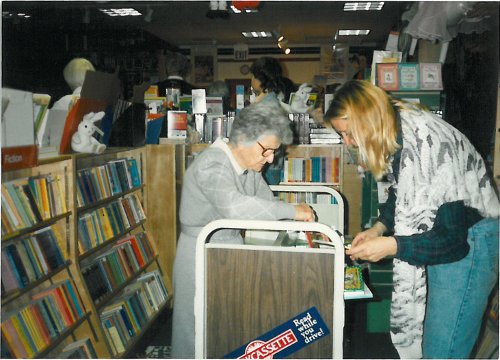
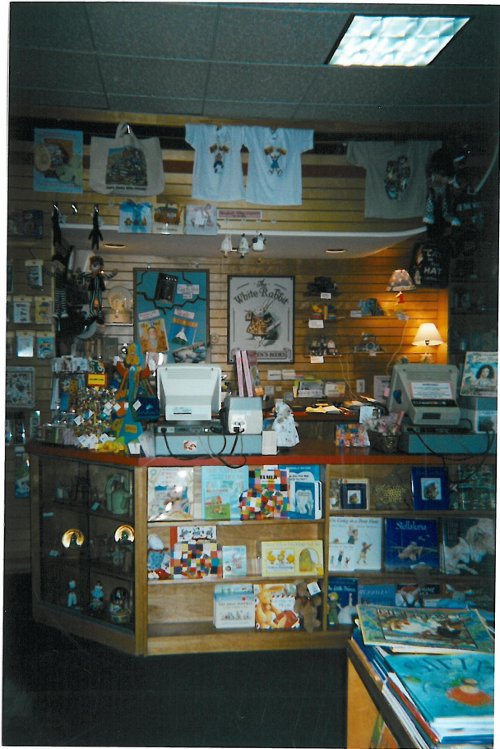
When I became a teenager, I started working at the store, and I was fortunate enough to work side-by-side with my grandmother, who had joined us in America. I worked there all through high school and college (University of California San Diego). I double-majored in history and political science, but I also took a lot of lit classes. However, my real education with regards to children’s books definitely took place in my parents’ store. At this point, I was realizing how much I loved hand-selling books and finding the perfect book for a customer. It’s something that I feel I still do today: pairing up authors and illustrators with the right editor.
One fun story about this era is that I met Jon Scieszka and Lane Smith on their first tour for The True Story of the Three Little Pigs. They came through the store in 1989 when I was sixteen years old and working the cash register. It’s amazing to think that I now represent both of them. The White Rabbit closed almost ten years ago, but the impact that it had on me is immeasurable.
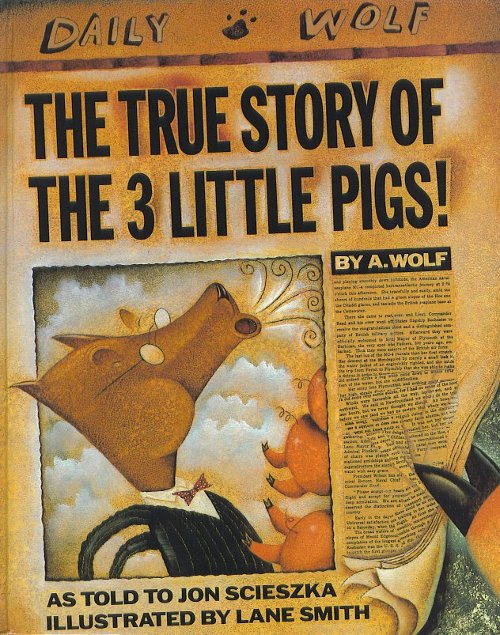
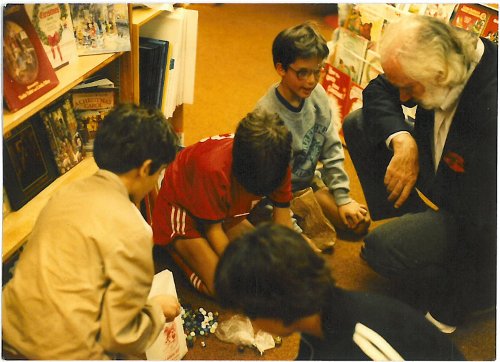
I’m the one in the soccer uniform.”
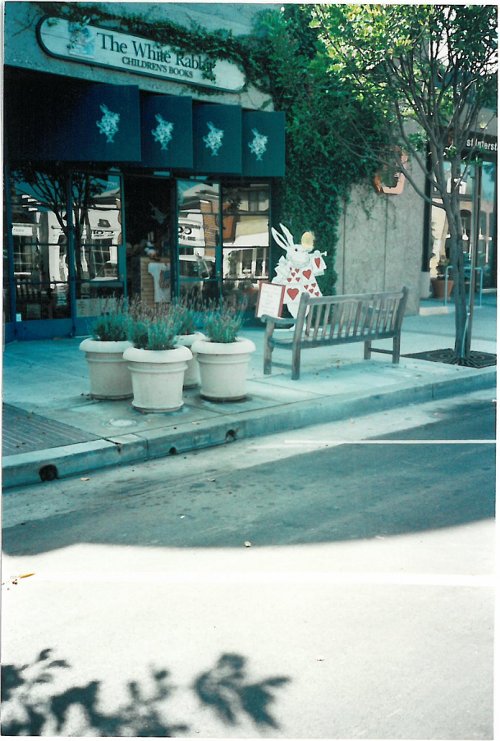
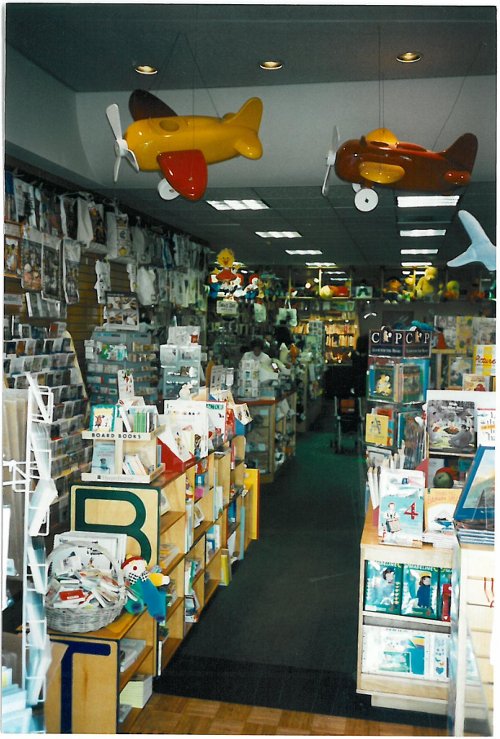
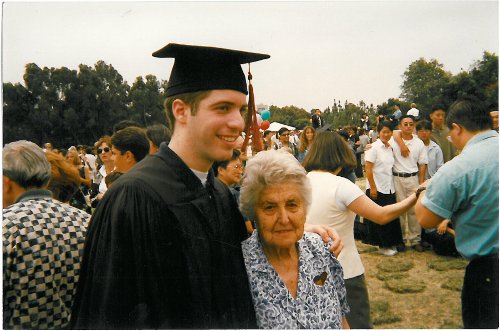
Withrow: What a great “origin” story, Steve! It must have been amazing to meet all those greats; and I too love Barbara Cooney’s work. Did you ever consider a career as an author? And how did you go from working in your parents’ store to your current role at Writers House? In other words, please give me a whirlwind tour of your education and early career.
Malk: Honestly, I never really considered being an author. I’ve always had a deep admiration for people who write, and I love working with them, but it’s not something that I ever thought I’d be particularly good at. When I was about 19 or 20, I realized that I wanted children’s books to be my career, largely based on my experience at the White Rabbit, and also thanks to an amazing writing teacher I had in college named Shawn Smith, who really helped me to hone my editing and analytical skills. I wasn’t sure in what capacity this would happen. A large part of me thought that I’d always be a children’s bookseller, and that would have been just fine with me, as that still stands out as one of the happiest times in my life.
But around that same time I was hired as an intern at the Sandra Dijkstra Literary Agency in Del Mar, California, and I knew by the end of my first day that being an agent was the perfect job for me. It brought together my interests in being involved with both the creative and business sides of an author’s career. And it gave me a chance to work on behalf of the people whose books I’d been selling at the bookstore. The job really seemed made for me, and I started working there full-time the day I graduated from college. I tried my best to soak everything up in this fast-paced environment. Sandy was great about letting me take initiative and start representing authors at a very young age, partially because of my experience at The White Rabbit, which had given me a great foundation. I sold Melinda Long’s How I Became a Pirate at the age of 23 (it didn’t come out until many years later), Elise Primavera’s Auntie Claus a year later, as well as Stop Pretending by Sonya Sones. I loved seeing a different side of the children’s book business and really liked the children’s book community, which was very welcoming. Richard Jackson, in particular, was a great mentor to me when I was starting out (I initially cold-called him to introduce myself, and he was so generous with his time), and the Society of Children’s Book Writers and Illustrators (SCBWI) was very supportive. Lin Oliver invited me to speak at their national conference when I was 23—she really took a chance on me.
In 1998, I had the opportunity to join Writers House and open a West Coast office for them. I was very familiar with the agency and their commitment to children’s books and young adult literature, so it was an opportunity that I couldn’t pass up. I also immediately hit it off with Amy Berkower (the president of Writers House) and realized that we shared a very similar philosophy about author representation, so it seemed like a perfect fit. She’s been an amazing mentor ever since.
Withrow: How does your role as a West Coast agent differ from those of your colleagues on the East Coast? Has technology erased any divide that may once have existed geographically? And, as a side note, do you think New York City and Boston will remain the children’s publishing capitals, given changing technology?
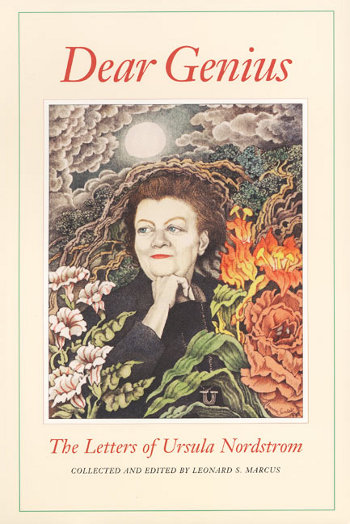 Malk: I wouldn’t really say that my role differs at all from my colleagues in New York as a result of being on the West Coast. Our day-to-day is quite similar, although they’re having a lot more lunches with editors. And I should add that I’m very much in touch with my New York colleagues—rarely a day goes by that I don’t talk to one or more of them. When I first started and I was still trying to form relationships with editors (not everyone was as welcoming as Dick Jackson), I do think that I had to work harder to show editors that I had good material and that they should pay attention to my submissions. And I certainly made the most of any chance that I had to get in front of them.
Malk: I wouldn’t really say that my role differs at all from my colleagues in New York as a result of being on the West Coast. Our day-to-day is quite similar, although they’re having a lot more lunches with editors. And I should add that I’m very much in touch with my New York colleagues—rarely a day goes by that I don’t talk to one or more of them. When I first started and I was still trying to form relationships with editors (not everyone was as welcoming as Dick Jackson), I do think that I had to work harder to show editors that I had good material and that they should pay attention to my submissions. And I certainly made the most of any chance that I had to get in front of them.
Email has made everything much easier. Sometimes I think that it’s made things too easy and quick, actually. It’s hard not to romanticize the letters in Leonard S. Marcus’s Dear Genius: The Letters of Ursula Nordstrom.
The question of whether New York and Boston will remain the epicenter of children’s publishing is a very interesting one. I do think they will continue as such for the foreseeable future, but maybe not to the same extent. I think it’s only natural that things will diversify a bit geographically.
Withrow: To give us a glimpse into the real life of a children’s book agent, could you share with me an anecdote about working with one of your clients?
 Malk: One story that comes to mind immediately is my experience with Sara Pennypacker and Marla Frazee’s Clementine series. I’d been representing Sara for several years before the first Clementine book. I sold her books, Stuart’s Cape and Stuart Goes to School, which didn’t get out there nearly as much as they should have, partly because Martin Matje, the incredibly talented illustrator of those books, passed away before the series could really pick up momentum. Several years after that, Sara told me about the idea for Clementine, and when I saw the first pages a few months later, I immediately felt that Sara had written something that was funny, quirky, and full of heart (which sort of describes Sara, actually).
Malk: One story that comes to mind immediately is my experience with Sara Pennypacker and Marla Frazee’s Clementine series. I’d been representing Sara for several years before the first Clementine book. I sold her books, Stuart’s Cape and Stuart Goes to School, which didn’t get out there nearly as much as they should have, partly because Martin Matje, the incredibly talented illustrator of those books, passed away before the series could really pick up momentum. Several years after that, Sara told me about the idea for Clementine, and when I saw the first pages a few months later, I immediately felt that Sara had written something that was funny, quirky, and full of heart (which sort of describes Sara, actually).
I should say that the series was written and imagined very much as a chapter book series along the same lines as the Stuart books. I knew that publishers were feeling that it was very hard to break out a new series in this category, so I thought I should really shoot high and try to pair the text with a top illustrator before submitting it to publishers. The text reminded me so much of the Ramona books, which have always been favorites of mine. (I mean, is there anyone who doesn’t love those books?) I also thought of many conversations that I’d had with another client, Marla Frazee, about how she wanted to illustrate an older series at some point in her career and how much she loved Louis Darling’s illustrations. I felt immediately that putting together Marla with this text would be the perfect match. Sara agreed with me (it’s hard to imagine anyone not getting excited about the prospect of Marla Frazee bringing their characters to life), and we were both thrilled beyond belief when Marla loved the manuscript. At this point, I felt that I had a pretty amazing package: the beginning of an amazing manuscript with a charming, fresh heroine to be illustrated by Marla Frazee.
I was sure that selling this would be very easy. I was wrong. Editors appreciated the character and loved the idea of working with Marla and could imagine what she’d do with it, but everyone was stuck on the fact that it was a chapter book, and they felt that it would be very hard to make it stand out. I was truly surprised and disappointed. Fortunately, Donna Bray, who was at Hyperion at the time, had the idea to age the books up, and make them into young-middle-grade novels, where they’d have a better chance to stand out. She couldn’t have been more right, and the series has gone on to garner great reviews and win lots of fans. It’s a good story of running into a bit of resistance initially, but ultimately having success. It’s always nice to feel vindicated!
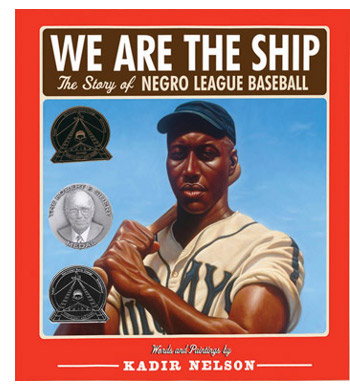 Something else that came to mind when I read this question has to do with one of the very best benefits of being an agent: my relationships with clients. I just attended my client, Jon Klassen’s wedding last weekend, and I’ve been thinking about this a lot. So many of my clients have become very close friends. They’ve welcomed me into their homes, and we’ve had amazing celebrations, strategy sessions, and fun times together. One experience along these lines that I’ll never forget happened last summer. Kadir Nelson had been invited by the San Diego Padres to attend their Negro League Baseball celebration and sign copies of his book, We Are the Ship. He invited me to be his guest, and I was thrilled to attend. It was an amazing day—we attended a luncheon where legends such as Willie Mays, Monte Irvin, and Minnie Minoso were speakers, and I watched members of the Padres and Tigers wait in line to buy a book and have Kadir sign it. (I have to admit that I felt just a little like Jerry Maguire that day.) That evening, we got to watch the game with Kadir’s family in a box with a group that included Mays, Irvin, Minoso, Dave Winfield, and many others. It was truly a once-in-a-lifetime experience.
Something else that came to mind when I read this question has to do with one of the very best benefits of being an agent: my relationships with clients. I just attended my client, Jon Klassen’s wedding last weekend, and I’ve been thinking about this a lot. So many of my clients have become very close friends. They’ve welcomed me into their homes, and we’ve had amazing celebrations, strategy sessions, and fun times together. One experience along these lines that I’ll never forget happened last summer. Kadir Nelson had been invited by the San Diego Padres to attend their Negro League Baseball celebration and sign copies of his book, We Are the Ship. He invited me to be his guest, and I was thrilled to attend. It was an amazing day—we attended a luncheon where legends such as Willie Mays, Monte Irvin, and Minnie Minoso were speakers, and I watched members of the Padres and Tigers wait in line to buy a book and have Kadir sign it. (I have to admit that I felt just a little like Jerry Maguire that day.) That evening, we got to watch the game with Kadir’s family in a box with a group that included Mays, Irvin, Minoso, Dave Winfield, and many others. It was truly a once-in-a-lifetime experience.
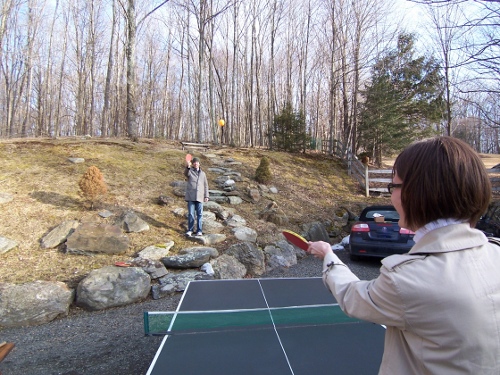
Withrow: You’ve talked in the past about approaching new authors, as well as your role in helping your clients generate story and book ideas. Could you talk a little about your acquisition and collaborative processes?
Malk: I’ve always tried to be aggressive about approaching unrepresented writers and artists whom I’m interested in working with. I’ve found many clients this way. Some of the illustrators I’ve approached include Jen Corace, Carson Ellis, Yoko Tanaka, Carrie Gifford, and Nikki McClure, whom I’ll discuss more in a minute.
One of my favorite stories involves approaching Frank Portman or, as he was known to me at the time, Dr. Frank. Frank was the singer, guitarist, and songwriter for the legendary East Bay pop-punk band, The Mr. T Experience. I’d been a huge fan of the band for many years; I’d seen them live at least twenty times. I loved the catchy songs and great shows, but what really set them apart for me were Frank’s incredibly witty lyrics. He’d penned such classics as “Even Hitler Had A Girlfriend“ and “I Love You, But You’re Standing On My Foot.” What was extra intriguing for me was the fact that my favorite MTX album, Our Bodies, Our Selves, had a song called “Are You There God, It’s Me, Margaret,” and another one called “Bridge To Terabithia.” Perfect, I thought. Not only does he write great songs, he also appreciates classic children’s lit. I eventually got up the nerve to talk to Frank after a show, and though he was friendly, he said that he couldn’t imagine writing a book. I tried again a couple of years later. Same thing. Finally, he agreed to have dinner with me, and I somehow convinced him to try his hand at this. When MTX was touring through New York, I invited a few editors to watch them play and meet with him. Krista Marino from Delacorte was the only one brave enough to attend. She met with Frank and suggested that he take one of his songs and see if he could use it as the basis for a book, and King Dork was born. I never had a doubt that Frank would be funny, but his ability to sustain such a unique voice and craft such a strong debut novel surprised even me. And I was thrilled that his writing career finally won him the mainstream audience that he’d deserved for so long.
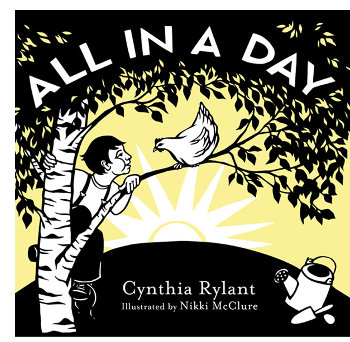 Another story involves Olympia, Washington, cut-paper artist, Nikki McClure. Nikki was a seminal figure in the Northwest art scene, and she had been self-publishing a calendar for many years. I’d always noticed and admired it, as much for the messages as for the art. The images were powerful and iconic and dealt with respecting the environment, slowing down, and celebrating simplicity. I thought she’d be such a natural for picture books, and I really felt sure that children and parents would appreciate her message and her style of illustration. I wanted to find the right text to pair with her work, and I knew that my client, Cynthia Rylant, was a fan of her work. I suggested to Cyndi that she might try writing something for Nikki. She responded shortly thereafter with the text for All in a Day. It was beautiful and couldn’t have been a more perfect fit for Nikki, and we were all thrilled when Abrams published it and went on to have a lot of success with it. People loved Cyndi’s melodic words paired with Nikki’s bold style, and the book became a New York Times bestseller. Nikki’s still making her calendar (the 2010 edition is out, and it’s the best one yet), but she’s also found a new career in children’s books, and it makes me very happy that her message is getting out there to a wider audience.
Another story involves Olympia, Washington, cut-paper artist, Nikki McClure. Nikki was a seminal figure in the Northwest art scene, and she had been self-publishing a calendar for many years. I’d always noticed and admired it, as much for the messages as for the art. The images were powerful and iconic and dealt with respecting the environment, slowing down, and celebrating simplicity. I thought she’d be such a natural for picture books, and I really felt sure that children and parents would appreciate her message and her style of illustration. I wanted to find the right text to pair with her work, and I knew that my client, Cynthia Rylant, was a fan of her work. I suggested to Cyndi that she might try writing something for Nikki. She responded shortly thereafter with the text for All in a Day. It was beautiful and couldn’t have been a more perfect fit for Nikki, and we were all thrilled when Abrams published it and went on to have a lot of success with it. People loved Cyndi’s melodic words paired with Nikki’s bold style, and the book became a New York Times bestseller. Nikki’s still making her calendar (the 2010 edition is out, and it’s the best one yet), but she’s also found a new career in children’s books, and it makes me very happy that her message is getting out there to a wider audience.
In general, collaborating with clients in this manner is one of my favorite parts of my job. Mac Barnett’s Brixton Brothers series grew out of a conversation we had about how much we both loved Ellen Raskin’s The Westing Game, and I was glad to connect him with another client, the multi-talented Adam Rex. (Please watch for his second novel, Fat Vampire, which will be published this summer.)
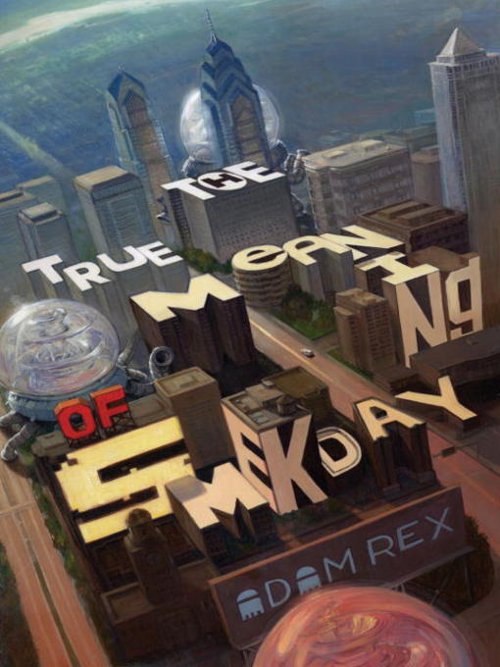
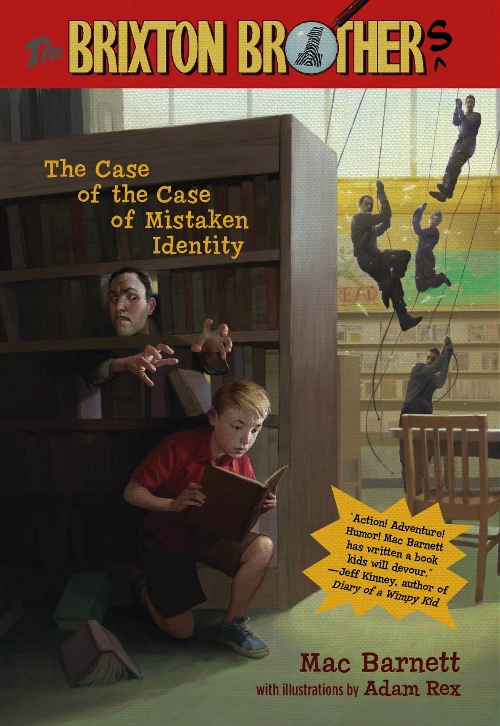
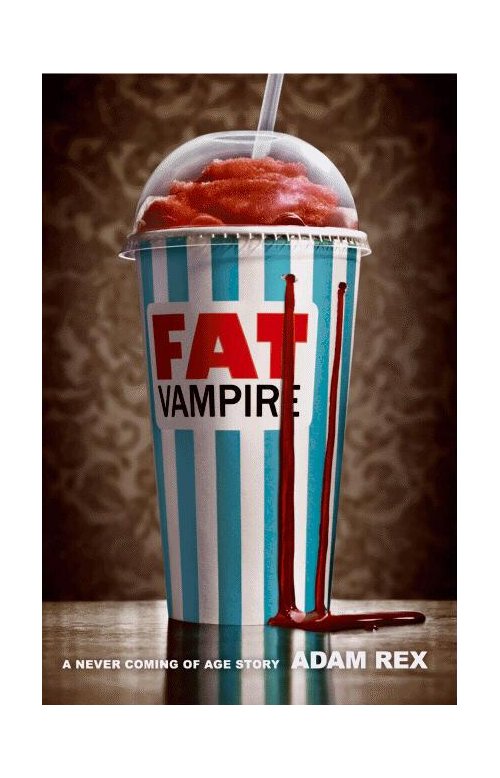
Withrow: What advice would you give to an aspiring children’s or YA author seeking an agent?
Malk: It’s hard to answer this question in a concise way, but I’m going to do my best.
My first piece of advice is always to slow down. Remember that, if this is a career that you plan to have for 20, 30, 40, maybe 50 years, then it’s absolutely worth taking an extra few months or even a year to build a career strategy before jumping into the market. I completely understand the impulse to want to get your work out into the world as soon as you possibly can—I really do—but it really behooves you to take some time and think hard about your overall career strategy and what sort of agent you want.
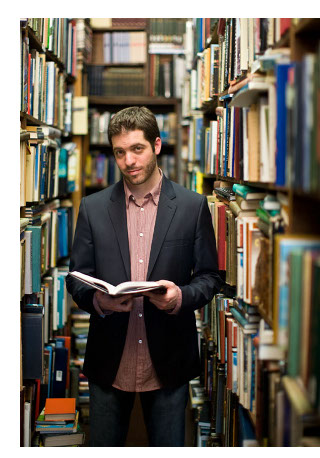 Most agents are quite different from one another—we all have our own style—and what works for one author or illustrator may not be right for someone else. Think about what style of communication you like, whether you want an agent who gets involved editorially, if you want an agent who specializes specifically in children’s/middle-grade/YA only, etc. When you have that figured out—and it’s okay if it takes you some time; in fact it should take you quite a bit of time—try to identify those agents who seem like the best fit for you. Think about agents who have represented some of your favorite books. However you ultimately make the decision, try to be as targeted as possible and find the right agent for you — not just any agent.
Most agents are quite different from one another—we all have our own style—and what works for one author or illustrator may not be right for someone else. Think about what style of communication you like, whether you want an agent who gets involved editorially, if you want an agent who specializes specifically in children’s/middle-grade/YA only, etc. When you have that figured out—and it’s okay if it takes you some time; in fact it should take you quite a bit of time—try to identify those agents who seem like the best fit for you. Think about agents who have represented some of your favorite books. However you ultimately make the decision, try to be as targeted as possible and find the right agent for you — not just any agent.
Once you’ve identified the agents you plan to approach, be sure to do your research and when it gets to the point of querying an agent, make sure you do so as professionally as possible. I can’t stress that enough. It may sound like common sense, but you’d be surprised how many queries I receive that contain spelling errors, grammatical errors, or are for a genre I don’t represent. I also get a lot of email queries that are addressed to several different agents at the same time (all of the different agents are in the “to” field of the email). Or they’re from someone who hasn’t looked at my submission guidelines at all. Obviously, someone’s work is going to speak for itself, but when I see an unprofessional query letter, it makes me think that this person isn’t taking their work or this industry seriously enough or that they’re just dabbling, which is something that I don’t have any patience for.
I want to work with people who are completely committed to this business and who love it as much as I do. That has a way of coming through in a query. I’m not asking for anything out of the ordinary—just a concise letter that clearly establishes the writer or illustrator as a professional, shows me that he or she has a strong handle on their work, how their work fits into the market, and what their background is. I’m also interested to know why someone is querying me specifically, and also what their influences are. I’m always fascinated to know about people’s influences, because I think it says a lot about someone.
The bottom line here is that it’s important to understand that each decision you make impacts your career. Sometimes that impact is large and sometimes it’s small, but it’s important to take ownership over your career and realize that each decision you make has consequences. And I mean everything. The way you present your work, the way you approach agents—these are all decisions that can alter the course of your career. Make each decision in a calm, educated way, not in a rash, shot-in-the-dark sort of way. Remember that this is your career. Treat it seriously, and take the time you need to find the right match in an agent.
Withrow: You mentioned your love of baseball, and I’ve read that you also enjoy playing fantasy baseball and collecting bobbleheads. Could you share some thoughts on this, or anything else our readers might find surprising about you?
Malk: It’s funny that my bobblehead collection and my fantasy baseball addiction (in the interest of full disclosure, I should say that I also play fantasy football and fantasy basketball—the latter being my favorite) made it into this interview. I’ve always been a huge sports fan. As a kid, my brothers and I collected baseball cards, and we’d send them away with a letter to players we liked, hoping to get them back with an autograph. I would read everything that I could about baseball as a kid. These days, I’m constantly emailing back and forth with my other baseball-obsessed colleagues, Simon Lipskar, Dan Conaway, Al Araneo, and Michael Mejias, analyzing trades and free-agent signings. I guess fantasy sports were a natural extension from my love of baseball. It’s like the sports version of Dungeons & Dragons, I guess.
In terms of the bobbleheads, I just started picking up ones that held some sort of sentimental value for me. I’m an incredibly nostalgic person, so having a Count Chocula or Cap’n Crunch or Alfred E. Neuman or Tony the Tiger or Archie or Jughead or…I’ll stop there…on the shelf in my office is comforting. I also have a collection of baseball bobbleheads—guys I grew up watching, like Mike Schmidt and Nolan Ryan.
As far as things that people might find surprising, I guess people are often surprised that I’ve been a vegetarian for more than twenty years. Or maybe that just goes along with the California thing.
I’m also sort of obsessed with making lists. This has been something that I’ve done since I was a kid. I’m forever refining various lists in my head. Some of my current ones:
- Favorite movies: 1. Hoosiers; 2. Rushmore; 3. Ghost World.
- Favorite 1980s movies: 1. Real Genius; 2. Fletch; 3. Sixteen Candles.
- Favorite books illustrated by Barbara Cooney: 1. Emma; 2. Emily; 3. Roxaboxen.
- Favorite TV shows: 1. Friday Night Lights; 2. Curb Your Enthusiasm; 3. Mad Men.
- Favorite Buddy Holly songs: 1. “Words of Love”; 2. “I’m Gonna Love You Too”; 3. “Oh Boy!”
- Favorite self-titled debut albums: 1. The Specials; 2. The Clash; 3. The Ramones.
- Favorite non-children’s/MG/YA writers: 1. Aaron Cometbus; 2. Kazuo Ishiguro; 3. Michael Lewis.
- Favorite snack chips: 1. Have’a Corn Chips; 2. Rusty’s Island Chips; 3. Cape Cod Potato Chips.
- Favorite apple varieties: 1. Honeycrisp; 2. Jazz; 3. Pink Lady.
- Favorite vegetarian restaurants: 1. Cafe Flora in Seattle; 2. Native Foods in Costa Mesa; 3. Candle 79 in New York.
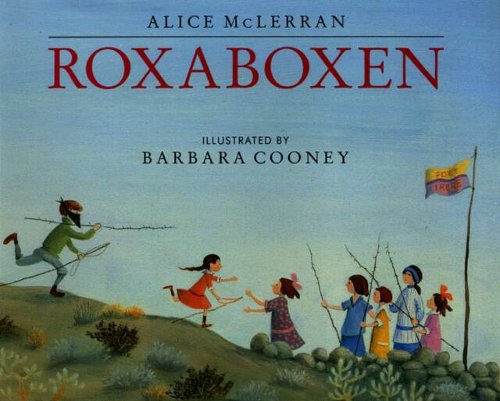
Withrow: Thanks very much, Steve, for joining us here at 7-Imp!
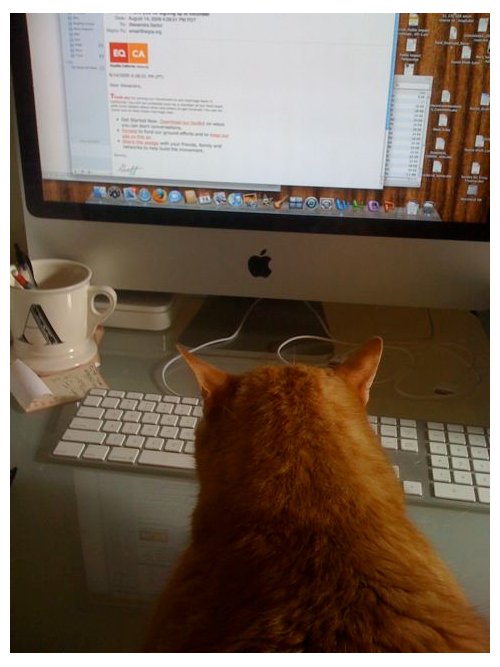

Wow. Great interview! It is so refreshing to hear the agent’s perspective of book making. The book making process takes everyone involved, and it is so neat to see the build ot steven’s career….proving again that each has his own path to publication. you have had some amazing work come your way! Some of my favorites! Thank you so much!
The White Rabbit Bookstore looks like a fabulous place. What an enchanting childhood Steven must have had.
Learned lots from this fascinating interview. Thanks so much, Steven x 2!
“Favorite self-titled debut albums: 1. The Specials; 2. The Clash; 3. The Ramones.”
And this, my friends, is why Steven Malk is a genius 🙂 (even though the Ramones really should be number 1!)
Great interview with a fascinating guy….
Jon
Children’s Book Insider
this was a very inspiring, great interview! I knew absolutely nothing about an agents role in lit.
Excellent interview! It’s so nice to get to know children’s publishing professionals more personally.
This is a killer interview – thanks so much for sharing it!
I got to see Steven present at the SCBWI conference this past August, and he is a wonderful, engaging speaker. Great interview. 🙂
What a great interview,Steve! I really loved seeing the pictures of The White Rabbit especially you & your brothers as children there. I’m sharing this interview with my all my Children’s Literature Friends.
You know, there are no book agents in the Philippines – that’s how tiny the industry is – so I found this interview fascinating on a whole other level.
I already can’t wait till the next Fieldnote!!!
As someone who also grew up at a local bookstore, it was wonderful to see that childhood passion for literature transform into a career. Loved the personal lists and anecdotes as well. Great interview!
Thanks, everyone! This was a lot of fun to put together.
Thanks to both of you! I know Steve Malk is passionate about his work from presentations and workshops (online) I’ve attended. To have an interview of this depth that highlights it even more was wonderful.
UCSD in the house! (Revelle 1998) I remember going to The White Rabbit when I was in college. Great book store! When I went back five years later the place turned into a stupid pet clothing store. Curse you La Jolla!
This is an excellent interview ! As one of his clients, I loved seeing so many photos from Steve’s past, especially the ones from the White Rabbit days. I feel like I got to see a whole other side of Steve, though this interview continues to reaffirm what an interesting, thoughtful person he is. I will pass this link on.
Thanks,
Sheela
I’d forgotten that Steve was such a hunk. Yowsa.
What a great interview!
Loved this post – Thanks!
What a fascinating interview! I love hearing how the sausage is made… I miss The White Rabbit terribly (I agree with Dan, the pet store is an affront). I saw so many luminaries there – Rosemary Wells, David Shannon, Kevin Henkes. Thanks so much for sharing the pictures!
i’ve queried writers house and now i know what to do better in presenting my work. thanks! i’ll take it slow.
[…] Sandra Dijkstra agency some years before and snagged the interest of a young whippersnapper named Steven Malk. In about a couple of weeks, that go-getter landed me a commission for a Christmas book. But timing […]
What a fabulous, in-depth, fun interview! I must say–of all the agent interviews I’ve read, none have been quite like this! Well done.
[…] College of Art and Design in 2007 and moved back to Dallas. I hooked up with my wonderful agent, Steven Malk, and then took a trip to New York and met with every publisher that was willing. I have been […]
[…] my doodles had improved somewhat, I found an agent willing to take a chance on my work. Chance would have it that the agent, Steve, also represents […]
[…] I quit my job at the bar and started calling myself an illustrator. A few years into my new career, Steve Malk, a literary agent, wrote and asked me if I was interested in illustrating books for kids, to which […]
Wow! This is one of the best interviews I’ve ever read. Steven Malk sounds like an amazing agent- and what a list of clients! Thank you.
[…] of the more exciting sessions I went to at LASCBWI 11 was a panel by Jon Sciezka and Stephen Malk. They covered a lot of ground while talking about a career plan, but the real takeaway was the […]
[…] “Everything Goes started out as a conversation back in 2007 I had with my agent, Steve Malk. We were discussing the fact that I’ve illustrated a lot of books and I wanted to write some […]
This is the best agent interview I’ve read – thank you for the wonderful insights!
[…] Fieldnote #2 by Steven Withrow:Steven Malk … – blaine.org blaine.orgJan 27, 2010 … Steven Malk: I absolutely think that’s true. Both my grandmother and my parents owned children’s bookstores, so I’m actually the third … […]
I just read this for a second time…truly an outstanding interview. Thank you, Steven Withrow and Steven Malk!
[…] instead of publishing the poems I’d already accumulated, SuperAgentSteve had another idea: What if I took a road trip around America in my VW bus, going to various bars for […]
[…] myself unemployed with no clear direction, one day my lovely, brilliant wife suggested I call Steven Malk, a literary agent whom I had made contact with a number of years before. Steve took me on, and we […]
[…] this year. She also shares a couple of personal pieces. (Pictured above is a piece she created for Steven Malk, her agent at Writers […]
Helping children to learn “big” words
Some things make me really irate
Like why monkeys and I are both primates
I know scientists are not infallible
So when they categorized me with this animal
They probably didn’t really ponder
That by lumping us together they would squander
The uniqueness of a human being
Which practically is a guarantee
That it will be feasible to be diverse
And speak and write in prose and verse
Because I bet no one ever glimpsed
A poem being written by a chimp
[…] to me, he took the liberty of sending my work to his literary agent, Steven Malk, and they both guided me through a couple years of building up my portfolio. Many evenings after […]
Steve can illustrate my hardcover ANYTIME.
[…] Seven Impossible Things Before Breakfast: Interview with Steven Malk […]
[…] the first half of The Book of Mistakes. I mocked up a dummy and sent it, heart pounding, to Steven Malk, an agent at Writers House, hoping he would see potential in the story. He did. He loved the […]
[…] – from Seven Impossible Things Before Breakfast […]